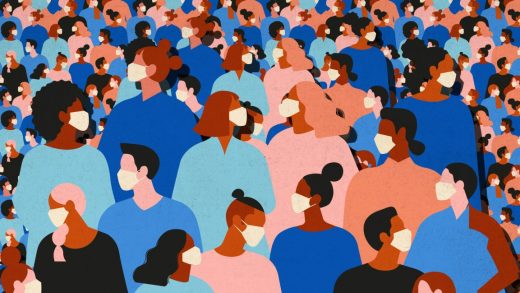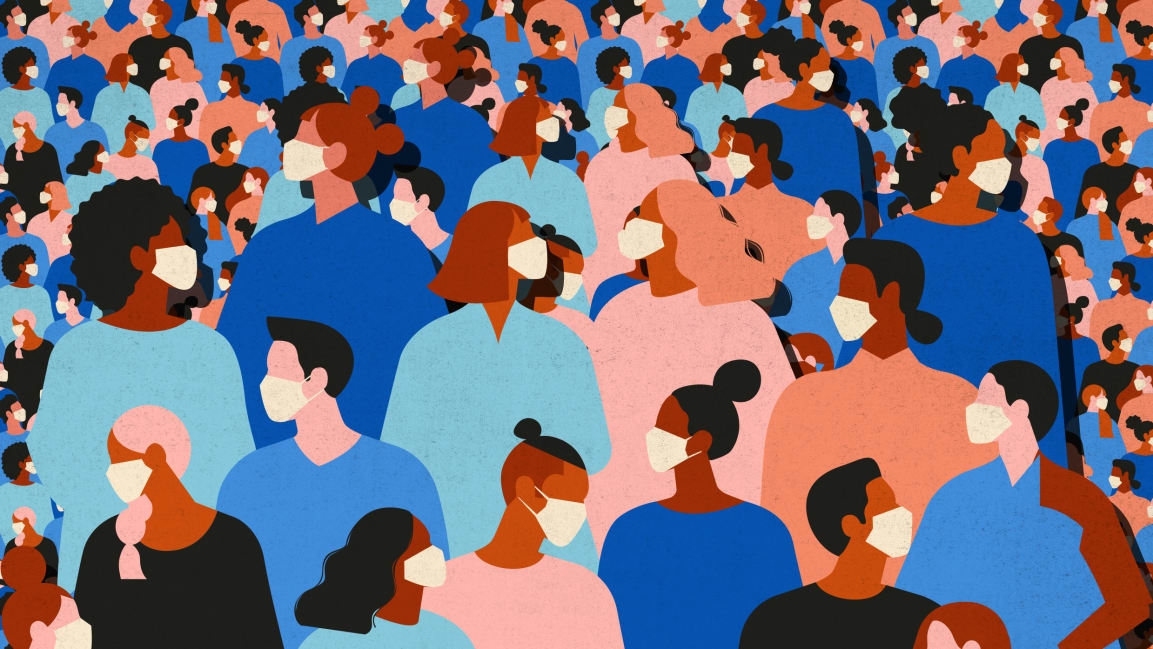How to prepare your home, your workplace, and yourself for a pandemic
Roughly a month after China launched the largest quarantine in human history, with more than 700 million people under full or partial lockdown as of last week, in an attempt at containment of the new coronavirus, the virus is now quickly spreading in other countries, including South Korea and Italy. On Tuesday, federal officials in the U.S. said that it’s not a matter of if the coronavirus will begin to spread in American communities, but when. San Francisco declared a state of emergency. No one knows, yet, how bad it might get. But here’s what individuals and companies can do to prepare.
The irony is that our federal recommendations recommend you get an extra week’s worth of supply, but the insurance companies don’t seem to agree because they don’t allow you to do it.”
First, stock up on extra, nonperishable food in case of a quarantine. A government site on pandemics recommends having a two-week supply. This is both because you may be stuck inside your home and advised to avoid contact with others if you get sick—and because of the risk that supply chain disruptions means buying food is difficult even if you’re healthy. “The steps you can take to prepare are steps you would take to prepare for a lot of natural disasters that affect communities across the country,” says David Eisenman, the director of the UCLA Center for Public Health and Disasters. “You’d be dealing with two issues at once by just making sure that you have enough food in your pantry.” Unlike an earthquake or hurricane, there’s no reason that a pandemic will take out your electricity, gas, or water, so you should be able to cook as usual.
Similarly, if you take any medications, stock up. Experts recommend anywhere from an extra week to an extra month of supplies. “If you’re a diabetic or you’re taking blood pressure pills, or you have asthma inhalers, make sure you have an extra week’s supply of that,” Eisenman says. “Unfortunately, that often requires gaming the health insurance system. The irony is that our federal recommendations suggest you get an extra week’s worth of supply, but the insurance companies don’t seem to agree because they don’t allow you to do it.” If you say that you lost your medicine or you’re going on vacation, he says, insurance companies will often override their policy. It also makes sense to buy extra over-the-counter medicine like Tylenol for fevers, and to gather extra cleaning supplies to sanitize surfaces.
Companies should prepare for the possibility that employees may need to work remotely in jobs where that’s feasible. “It’s always a possibility that public health officials in any number of communities will recommend steps to do what we call social isolation, which is reducing the community mixing of people,” he says. “And so we should be ready for that. That could happen in any community.” In some cases, people might still come to the office but work in staggered shifts so there’s fewer people in the office at any given time. In-person meetings may need to happen by videoconference; large conferences and international travel may need to be rescheduled or canceled. (Some major conferences, including the Mobile World Congress, have already been canceled.)
The quarantine at home is not going to work if people are afraid of losing their jobs and losing the money to pay the rent.”
Businesses also need to ensure that employees who are sick stay at home. “The quarantine at home is not going to work if people are afraid of losing their jobs and losing the money to pay the rent,” Eisenman says. “Our social responsibility as a nation, as businesses, is to make sure that we are all in this together and providing care and support for our friends and colleagues and workers who may have to quarantine at home for the good of all. If they don’t feel supported, they will come into the office and hide their coughs and hide their sneezing and infect more people.”
Individuals can take the obvious steps to avoid getting sick, including frequent handwashing, avoiding sick people, and eating well and getting enough sleep. But some factors are outside individual control. The CDC warns, for example, that healthcare systems and hospitals may become overwhelmed if large numbers of people get sick at the same time. The White House wants $2.5 billion to respond to the coronavirus—but that came days after releasing a budget proposal that cut funding for the CDC and NIH.
In 2018, the Trump administration “fired the government’s entire pandemic response chain of command,” as an article in Foreign Policy notes. There’s also a long pattern of underfunding work to prepare for this type of disaster.”For many years now, we’ve been underfunding hospitals and public health departments to be prepared for these infectious disease outbreaks,” Eisenman says. “And we’re now paying the price.”
(10)



